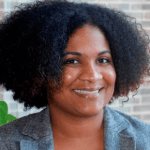A change is coming. Title IX, the law that bans sex discrimination in education, is transforming the way that schools respond to sexual harassment and assault, and students around the country will be better for it.
Title IX’s scope and reach have always been broad. While it is most known for the important work to open opportunities for girls in athletic programs, it also has more quietly increased access for women to higher education, expanded opportunities for women in the science and technology fields, and protected student parents from discrimination.
Today’s Title IX campaigns to combat harassment and violence are anything but quiet. Instead, Title IX is now aided by bullhorns and after decades we may finally see the systemic change it was designed to prompt. Many of the ingredients for a transformative movement are present: Campaigns are survivor-centered and driven, and student activists are challenging schools that fail to prevent and address harassment and violence. These vibrant activists are joined by policymakers eager to finally combat the problem of sexual assault—legislators at every level are working to support student survivors and improve school response. The attention to the issue goes all the way to the White House which has launched two public education campaigns, Notalone.gov and Itsonus.org. And many colleges and universities are responding by pressing forward with specific strategies to finally address the issue on campus.
Despite these important gains, it is critical that we pause to address holes in the important progress made to date. Indeed, now is the time to ask whether the policy development and public education campaigns are reaching all students.
We will have fumbled this opportunity if we don’t center the range of students who encounter sexual harassment and assault. Our work–and our policy solutions–must support the needs not only of students on traditional four-year college campuses, but also students in community college and other two-year settings, students in secondary schools, and young men and women who have become disconnected from school. The work must reach students who are homeless or in foster care. It must take into account the ways in which girls of color encounter violence. And it must reach the violence faced by girls who are transgender, queer or questioning.
Moreover, if we do not bring a serious focus to the problem of sexual harassment and assault in elementary and secondary schools, it will be nearly impossible to make real progress at any other level of education. Too often the story of sexual violence in K-12 schools shows administrators who are poorly informed about their Title IX obligations or avoid taking the necessary steps required by Title IX to end and prevent future harassment.
Fortunately, it is not too late to ensure that the work is inclusive and the strategies are broad-based. And Title IX, and the students and communities it was designed to protect, will be stronger for it.
Fatima Goss Graves is President and CEO of the National Women’s Law Center. She has spent her career fighting to advance opportunities for women and girls. Prior to becoming President, Ms. Goss Graves served as the Center’s Senior Vice President for Program, where she led the organization’s broad program agenda to eliminate barriers in employment, education, health and reproductive rights and lift women and families out of poverty.
Prior to being named Senior Vice President, Ms. Goss Graves led the Center’s anti-discrimination initiatives, including work to promote equal pay, combat harassment and sexual assault at work and at school, and advance equal access to education programs, with a particular focus on outcomes for women and girls of color. She uses a number of advocacy strategies in her work on these issues ranging from public education and legislative advocacy to litigation, including briefs in the Supreme Court and federal courts of appeals. Prior to joining the Center, she worked as an appellate and trial litigator at Mayer Brown LLP. She began her career as a law clerk for the Honorable Diane P. Wood of the U.S. Court of Appeals for the Seventh Circuit. Ms. Goss Graves is a graduate of the University of California at Los Angeles and Yale Law School. She currently serves on the EEOC Select Task Force on the Study of Harassment in the Workplace and is a Ford Foundation Public Voices Fellow and an adviser on the American Law Institute Project on Sexual and Gender-Based Misconduct on Campus.
Ms. Goss Graves is the author of this important editorial We Must Deal with K-12 Sexual Assault in the National Law Review.

